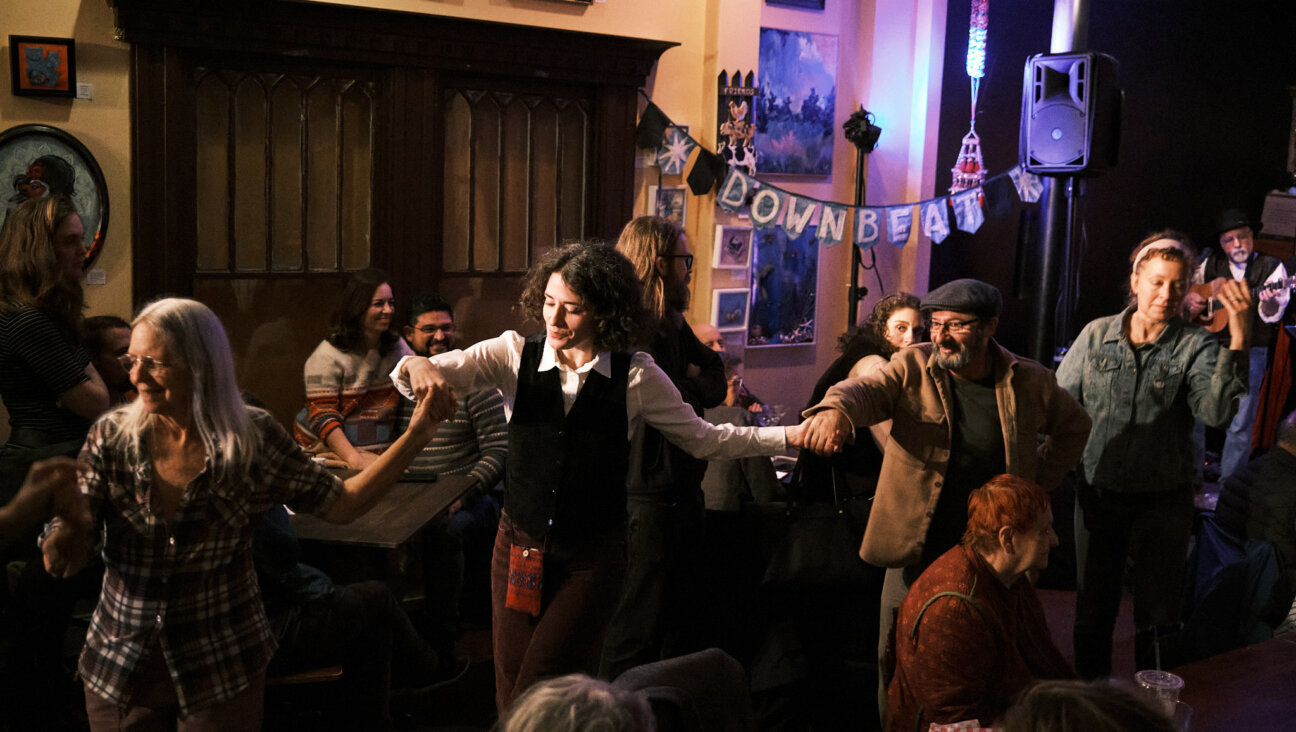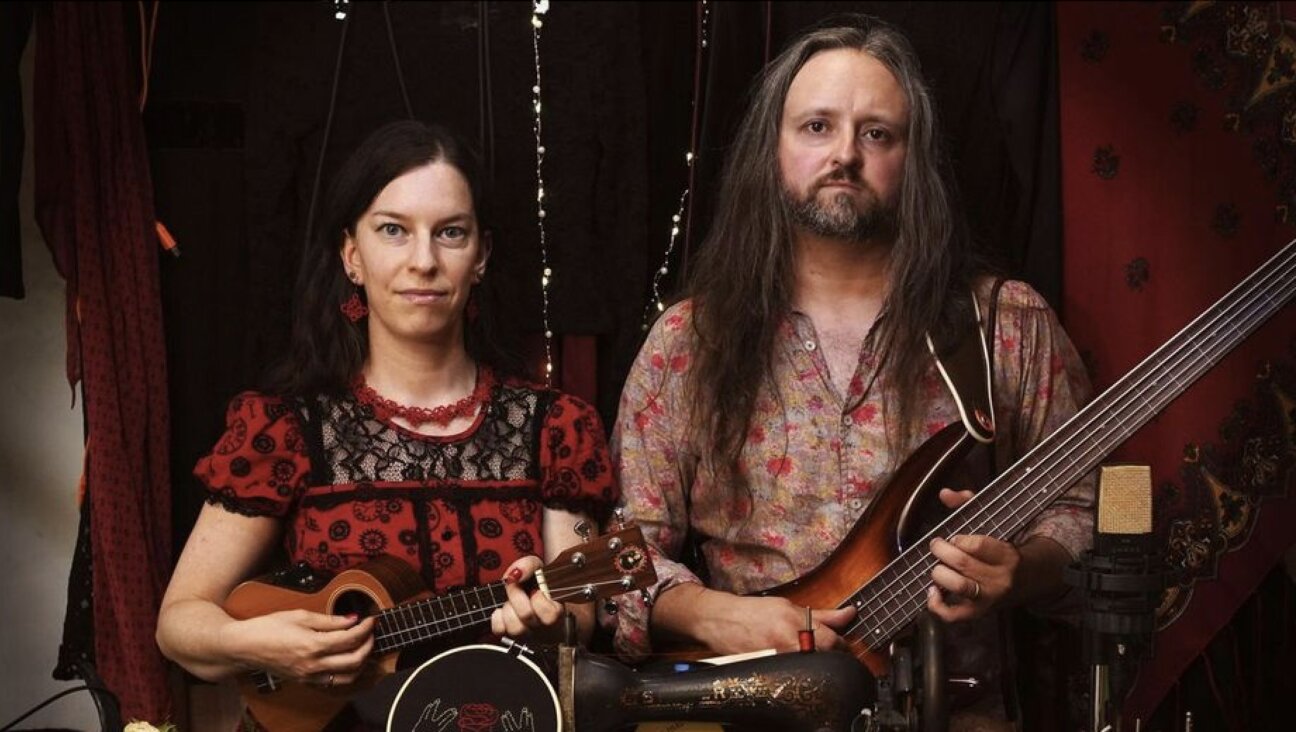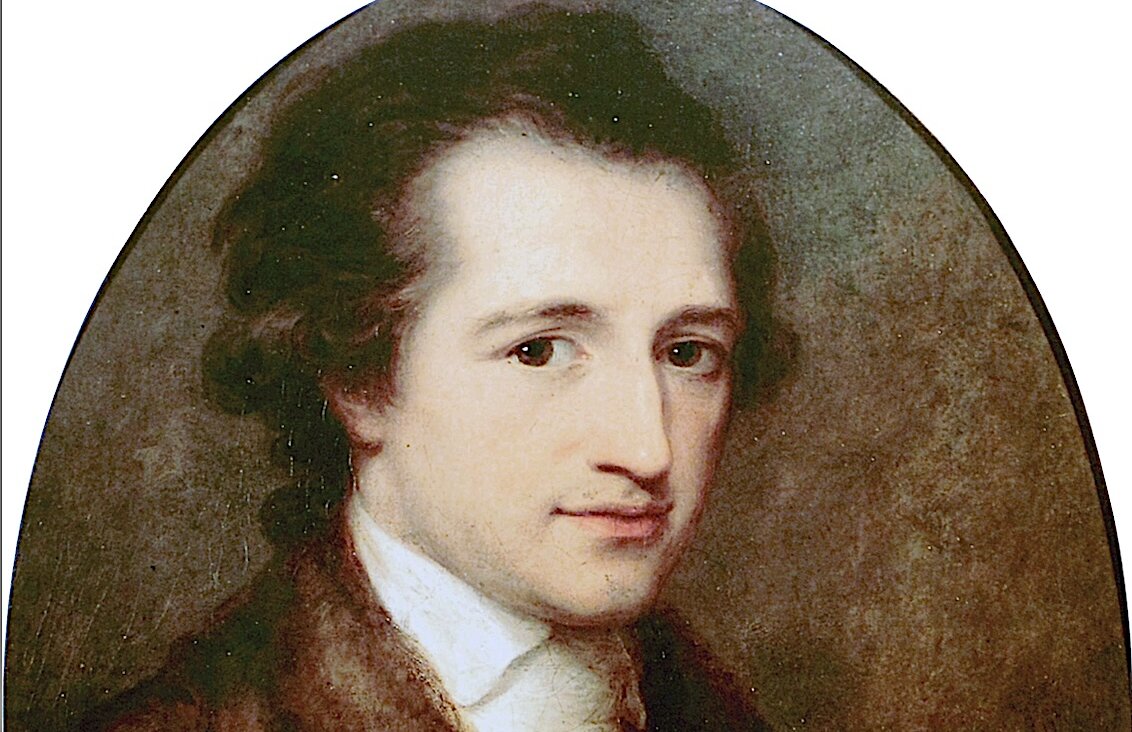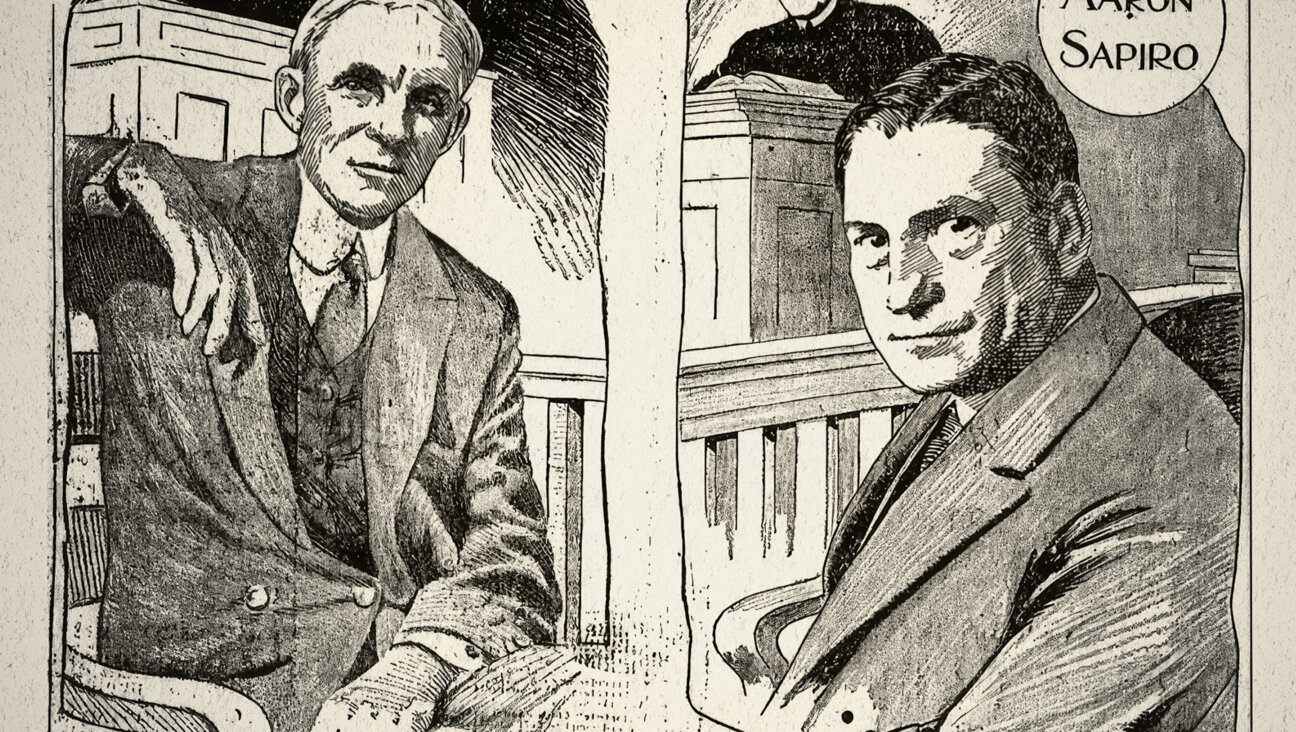VIDEO: Polina Shepherd sings a new Yiddish song, ‘The Tempest Breakers’
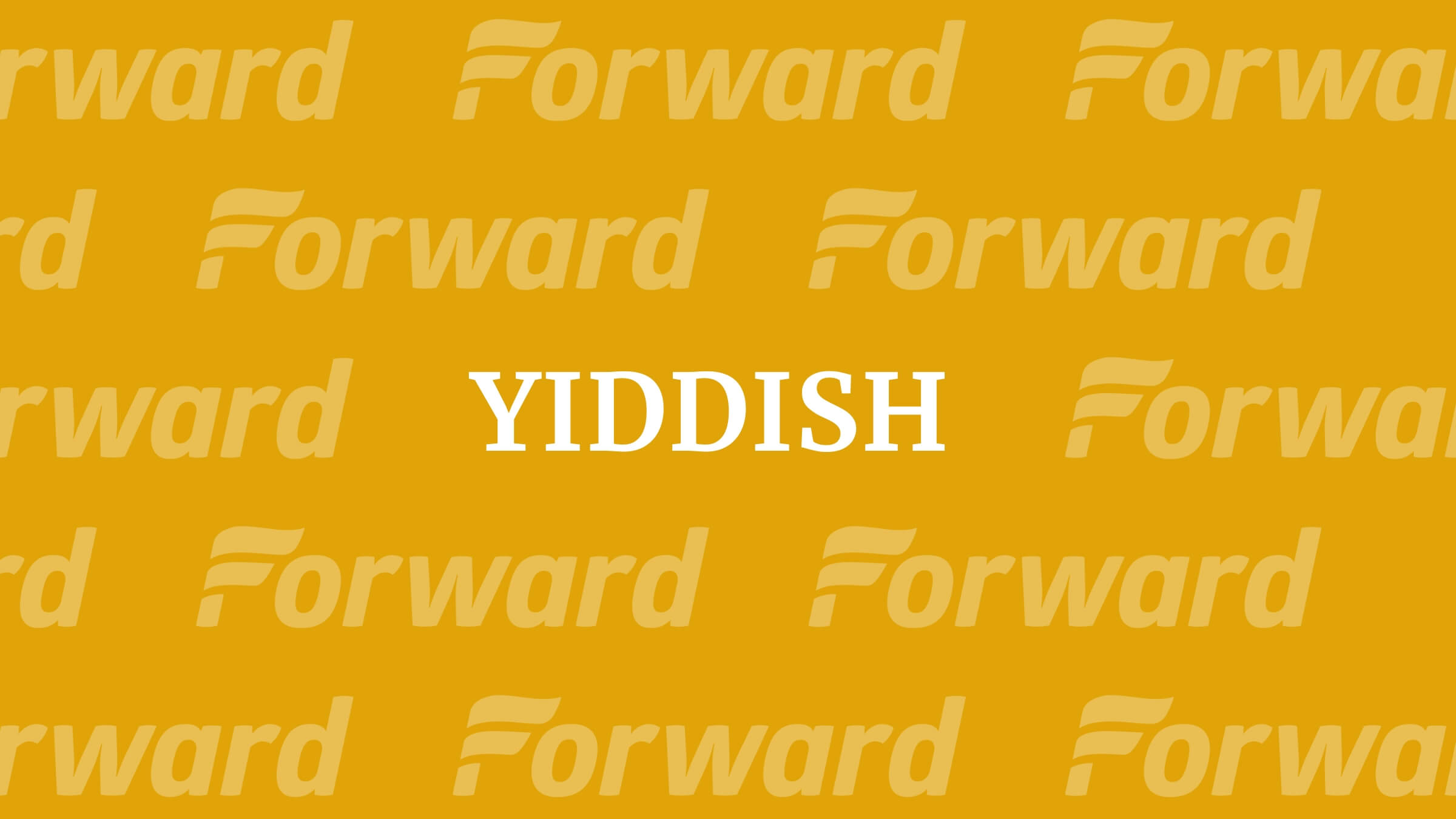
Graphic by Angelie Zaslavsky
This week, a video of a new Yiddish song, Di Veln (The Tempest Breakers), was posted on YouTube, performed by singer-songwriter Polina Shepherd, with piano accompaniment.
The lyrics are by the late expressionist poet, Abraham Nahum Stencl, and the melody and arrangement – by Shepherd herself. The video was produced by the Forverts.
Abraham Nahum Stencl (pronounced STEN-tsl) is not a well-known name in the Yiddish literary canon but during his lifetime, his modernist poetry was widely praised, even among celebrated writers who could only read his work in translation, like the German novelist, Thomas Mann.
Stencl was born in Czeladź, south-western Poland and studied at the yeshiva in Sosnowiec, where his brother was the official city rabbi. In 1917 he joined the Zionist organization, HeHalutz (The Pioneer) but after he was called to serve in the Russian army, he escaped to the Netherlands where he became a steel worker.
In 1921 he settled in Berlin where he met intellectuals and writers like Franz Kafka and Kafka’s lover, Dora Diamant, with whom he became life-long friends. He began writing Yiddish poetry which was published widely.
In 1936 he was arrested by the Gestapo and tortured, but then released. He settled in London where he met Diamant again with whom he launched a writers’ group that met weekly to discuss politics, literature, poetry and song in Yiddish. He also edited a Yiddish literary journal, Loshn un Lebn (Language and Life) from 1946 till 1981.
Polina Shepherd is a well-known Yiddish singer, composer and choral conductor, as well as a leading figure in the modern klezmer movement. She was born to a musical family in Tatarstan: her maternal grandfather played the bayan, a Russian type of accordion, and her mother was a professional singer of art songs.
Shepherd studied music at the Kazan State Conservatory and in 1990 joined the first klezmer band in Russia. Today she is a leading figure in the klezmer movement and is a devotee of the art song genre, which is apparent in her haunting musical music accompanying Stencl’s poem.


